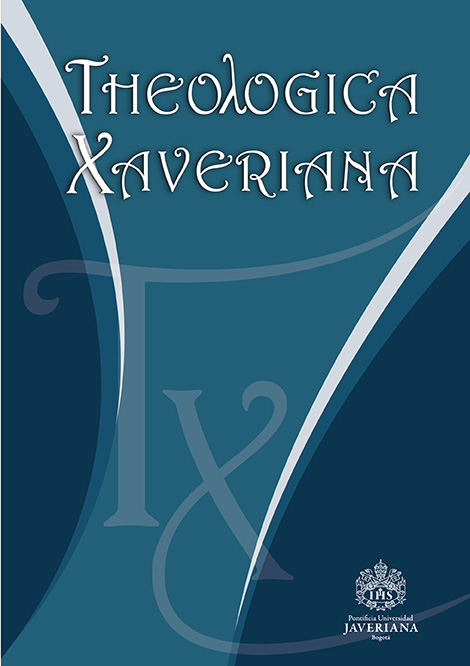Abstract
40 years ago, the Latin American bishops convened in Puebla to reflect upon and point towards new pastoral horizons and theological construction. This article conveys the dynamism, strength, and vigor of the message emanating from that meeting. Puebla gave clues of a new theology that, adhering to the Latin American method, can respond to the problems that question us with unprecedented vigor and invite us to envision new routes, fields of new approaches, and ways yet unpaved. The message arising from Puebla continues to be current. It opens up hope of new theological construction seeking to give a new dimension to its task, understand God’s action in history differently, as well as the human condition and its relation to nature. We live in a plural context, broad and open to the construction of theologies able to offer new interpretations of God’s revelation and action, a propitious moment to rethink theological efforts, regarding the challenges presented by Puebla. In this horizon, theological work should be understood from the experience of faith and fundamental openness of the being to God’s creative and salvific action, in the gratuity of filiation in the Son and not as a mere intellective obligation of the Christian faith. Puebla presents, not only for the Latin American people, but for the church in general, a reflection in which we are constantly reminded that human beings can transform situations of injustice into opportunities for liberation, forgiveness and mercy. It is up to every Christian to undertake a path of trustful commitment, marked by a spirit of solidarity and responsibility towards his or her neighbour. In this way one can make known the face of God of whom Puebla speaks and who cries out for justice.
Alessandri, Hernán. “El futuro de Puebla y sus repercusiones en la iglesia y en la sociedad latinoamericanas”. En Puebla. El hecho histórico y la significación teológica, editado por Olegario González de Cardedal y Juan Luis Ruiz de la Peña, 83-149. Salamanca: Sígueme, 1981.
Boff, Leonardo “Lectura del documento de Puebla desde América latina oprimida”. En Puebla. El hecho histórico y la significación teológica, editado por Olegario González de Cardedal y Juan Luis Ruiz de la Peña, 50-82. Salamanca: Sígueme, 1981.
Celam, “Documento conclusivo de Puebla”. Celam, https://www.celam.org/documentos/Documento_Conclusivo_Puebla.pdf (consultado el 02 de agosto de 2020).
Comblin, Joseph. “La conferencia episcopal de Puebla”. Mensaje, 277 (1979): 117-123.
Concilio Vaticano II, “Constitución dogmática sobre la Iglesia Lumen gentium”.Vatican, http://www.vatican.va/archive/hist_councils/ii_vatican_council/documents/vat-ii_const_19641121_lumen-gentium_sp.html (consultado el 02 de agosto de 2020).
Francisco, “Carta encíclica Laudato si’ sobre el cuidado de la casa común”. Vatican, http://www.vatican.va/content/francesco/es/encyclicals/documents/papa-francesco_20150524_enciclica-laudato-si.html (consultado el 02 agosto de 2020).
_____. “Constitución apostólica Veritatis gaudium sobre las facultades y universidades eclesiásticas”. Vatican, http://www.vatican.va/content/francesco/es/apost_constitutions/documents/papa-francesco_costituzione-ap_20171208_veritatis-gaudium.html (consultado el 02 de agosto de 2020).
González de Cardedal Olegario y Juan Luis de la Peña, Puebla. El hecho histórico y la significación teológica. Salamanca: Sígueme, 1981.
Gutiérrez, Gustavo. “Pobres y liberación en Puebla”. Diakonía 10 (1979): 39-69.
Gutiérrez, Mario y Juan Vicente Córdoba. “La opción por los jóvenes” En Análisis de Puebla, editado por Alberto Múnera, 309-313. Profesores 10. Bogotá: Universidad Javeriana.
Hurtado, Manuel. “La religión del pueblo en América Latina”. Razón y fe, 1438 (2019): 197-209.
Perdía, Mateo. “Factores generales que determinan hoy la nueva conciencia de la iglesia latinoamericana”. En Puebla. El hecho histórico y la significación teológica, editado por Olegario González de Cardedal y Juan Luis Ruiz de la Peña, 36-49. Salamanca: Sígueme, 1981.
Quarracino, Antonio. “Historia y fases principales de la nueva conciencia eclesiológica en América latina: Vaticano II-Medellín-Puebla”. En Puebla. El hecho histórico y la significación teológica, editado por Olegario González de Cardedal y Juan Luis Ruiz de la Peña, 15-35. Salamanca: Sígueme, 1981.

Dieses Werk steht unter der Lizenz Creative Commons Namensnennung 4.0 International.


